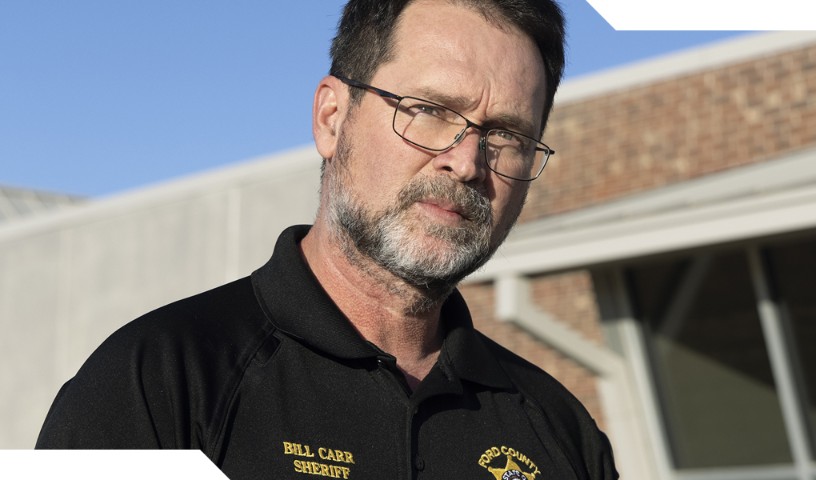Using FirstNet to battle big city problems in rural Kansas

In Ford County, Kansas, it’s not uncommon to have a deputy on the eastern part of Highway 50, and another deputy on the opposite corner down on Highway 54, near the Ford/Clark County Line.
So, our communication is absolutely important to us. It’s critical infrastructure. When it comes to radios or phone usage, it’s a must for us to have equipment that’s in working order – for the safety of our deputies and for the citizens we serve.
We have a population of approximately 35,000 citizens and serve 12 communities throughout the county. It’s a very diverse population in Ford County.
We’re not shielded from any crime out here in Western Kansas. So, we need to have the right equipment to make sure we can get from point A to point B, communicate with dispatch and do what we need to do.
That’s why we’re on FirstNet.
Waiting for back-up
Just a few years ago, before I moved up to the sheriff’s position and before we joined FirstNet, I conducted a traffic stop at 2:30 in the morning. It was on the far southeast corner of Ford County, off Highway 54. I was in a low area of the community near railroad tracks right, next to a farmhouse. And radio coverage was not the best.
Dispatch was able to capture my location when I initially checked out. But once I got out of my car and approached the vehicle, things went south. I tried to communicate with the radio to no avail. I wasn’t able to get back to my patrol vehicle. And after a little tussle and wrestling around, I was able to get both individuals detained.
Even after that, trying to relay to responding units, communication was scratchy at best. I was there roughly 40 minutes before my backup unit arrived.
The FirstNet difference
We’ve come a long way in advancements with technology since then – with the upgrades and the radio system. And FirstNet is giving us an added area of coverage that we’re really looking forward to and hoping to get deployed with all the deputies here in the near future.
One of the advantages I see in having FirstNet is the ability to just pick up the phone and know that I’ve got connectivity. We all carry our cellphones. So, whether I need to dial 9-1-1 or connect to dispatch directly or to another responding deputy, it’s nice knowing that I have that coverage.
Another key area that has really helped is having the mobile data terminals in our vehicles and using apps – especially when we dispatch officers to a car crash. In the past, we had to write everything down by hand on a notepad. Then we’d go back to the office, sit down, call dispatch, ask them to fax us a copy of the CAD printouts and do our reports.
Today, we can just fire up the MDT while we’re on scene waiting for the wrecker, go into the CAD report system and fill out the reports while on the scene. Basically, we can have everything done prior to the wrecker even arriving.
It keeps my staff out where they’re visible. And not driving back and forth saves on fuel consumption. It keeps them in the rural areas where I want them to be. I want them out patrolling more.
And with the COVID 19 threat, reducing the drive time back and forth from the field to the station also reduced contact with others and helped us cut down on cross contamination. That was a key part of this: just to keep that separation there and safety of the individuals and deputies alike.
FirstNet impact in the Alamo area
We’ve since put Cradlepoints in our vehicles. We’ve got mobile data terminals installed. We use a mobile app, and it’s been an absolute success. The staff enjoys it. And we’ve got access points throughout our building. And with the Cradlepoint in each vehicle, we’re able to just dial in at any point and pull off to the side of the road and file reports from the field, limiting everybody coming into the office just to get online and try to do reports.
I’d say the biggest thing right now is just having reliability. It’s knowing that we can rely on the service FirstNet provides and not losing our coverage. FirstNet has definitely stepped up to a new level. And it’s good to know that we’ve got dependability in FirstNet.
Sheriff Bill Carr has been the sheriff in Ford County, Kansas, since 2015. And he’s been with the Ford County Sheriff’s Office for nearly 30 years.